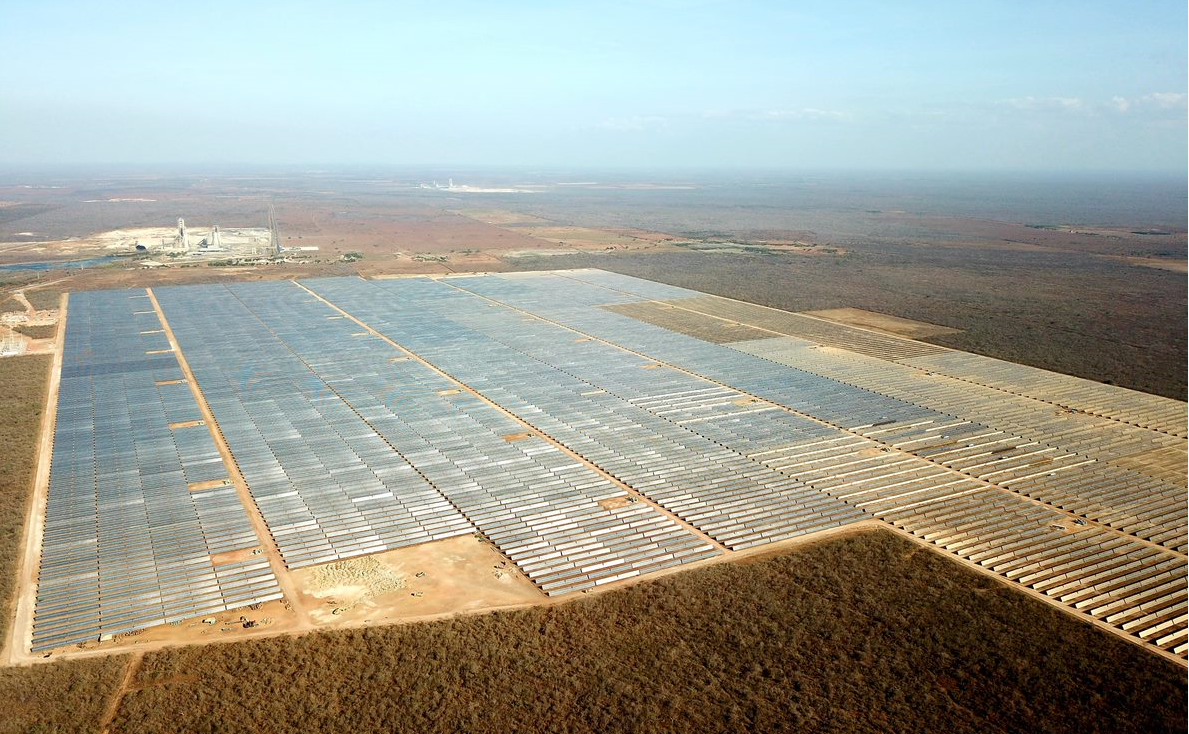Of the 4,920.7 MW of solar capacity Brazil’s government contracted through five energy auctions between 2014 and last year, approximately 2,193 MW are connected to the grid, according to the Strategic Study – Utility Scale Brazilian PV market 2019 report published by Brazilian consultancy Greener.
The study also reports that of the total 4.92 GW, some 290.5 MW was de-contracted by the government through a dedicated auction in August 2017; a further 109.1 MW have no probability of being connected; and 36.1 MW have a low probability of seeing the light of day. Greener estimates a further 1,361.3 MW of utility-scale solar projects lacking EPC contracts or suppliers have a ‘medium’ probability of being completed, and the remaining 3.23 GW is represented by finalized projects with what it says is a high probability of reaching completion.
The most successful tendering exercise was the first, held in 2015, which saw all the contracted capacity in operation, testing or under construction. A second auction held the same year resulted in 97% of the contracted capacity reaching the same stage.
The report estimates another 866 MW of utility-scale PV tendered and under construction has a good chance of becoming operational this year, with a further 163.8 MW given a medium chance of reaching fruition.
Imported modules dominate large-scale projects
Of the 90 solar projects contracted in the five auctions, 56 are being financed by Brazilian public development banks BNB and BNDES, which only support projects relying on locally manufactured components. Seven other projects are being backed by international private funding and the other 27 schemes are being developed with equity.
However, of the 3.235.6 MW of capacity in operation, testing, or under construction, only 725.8 MW are built with modules produced in Brazil. Some 2,475.7 MW relies on imported modules, with another 34.2 MW developed with panels from an unspecified source. “As the costs are 35% to 50% higher than [with] the imported modules, the PV projects using local modules require [the] favorable financing conditions provided by development banks,” the authors of the report state.
The largest module supplier for Brazilian large-scale solar is Jinko, with around 1.12 GW of shipments, followed by Canadian Solar and BYD, which both own and operate module manufacturing facilities in the country, and which accounted for 621 MW and 606.6 MW, respectively. The largest inverter supplier was US-based General Electric, with 1,060.3 MW of shipments, followed by Italian manufacturers, Fimer and Elettronica Santerno, which shipped 407.4 MW and 240 MW, respectively.
As for solar trackers, the largest supplier was Spain-based Soltec, with around 1.3 GW, followed by US-based Nextracker, with 614 MW, and Italy’s Convert, with 597.6 MW.
The authors of the report state the capex for large-scale solar projects is expected to fall further, from BRL3.16/W ($0.85/W) in 2018 to BRL2.89 this year, BRL2.60 in 2020 and BRL2.39 in 2021.
This content is protected by copyright and may not be reused. If you want to cooperate with us and would like to reuse some of our content, please contact: editors@pv-magazine.com.




By submitting this form you agree to pv magazine using your data for the purposes of publishing your comment.
Your personal data will only be disclosed or otherwise transmitted to third parties for the purposes of spam filtering or if this is necessary for technical maintenance of the website. Any other transfer to third parties will not take place unless this is justified on the basis of applicable data protection regulations or if pv magazine is legally obliged to do so.
You may revoke this consent at any time with effect for the future, in which case your personal data will be deleted immediately. Otherwise, your data will be deleted if pv magazine has processed your request or the purpose of data storage is fulfilled.
Further information on data privacy can be found in our Data Protection Policy.